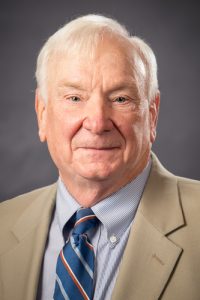By Matt Young, WV Press Association
CHARLESTON, W.Va. – The House Education Committee, on Monday, heard a funding presentation from Samuel Pauley, school operations officer with the W.Va. Department of Education (WVDE).
Also on the committee’s agenda were presentations from Fred Albert, president of the American Federation of Teachers W.Va. (AFT-WV) and Dale Lee, president of the W.Va. Education Association (WVEA).
Pauley, who was the first to present, began by telling the committee, “In my role, my primary duty to public schools in West Virginia is to implement the ‘School Aid Formula,’ also known as the Public School Support Program.”
Pauley explained that the funding formula utilized by the WVDE calculates areas such as personnel and fixed costs of transportation.
“The formula then calculates the total basic foundation allowance,” Pauley said. “And that number, for each county school system, is to represent the cost to educate our students – to provide that basic education that is provided for in the Constitution of West Virginia.”
Pauley added that county Boards of Education are constitutionally required to contribute funding to the basic foundation allowance, as well. This is referred to as the “local share.”
According to Pauley, “That local share is calculated based upon the regular levy tax base of each county school system.”
“Many of you who have been on this committee for years know that the School Aid Formula is a very complex formula,” Pauley noted. “I could be up here talking for days, and not get through all of it.”
In response to a question from Del. Joe Statler, R-Monongalia, regarding the specific calendar date that student enrollment is calculated for the purposes of funding, Pauley said, “The date that is used for that enrollment certification is the date closest to Oct. 1, annually.”
“Any student who would come into a school system after that date would not be included for the funding the next year,” Pauley added.
AFT-WV President Fred Albert, who was next to appear before the committee, provided an update on the “Solutions For Success” initiative.
“How this [initiative] came about was, in November 2022 the National Assessment on Educational Progress (NAEP) scores were released, and no one was pleased with how West Virginia fared,” Albert said. “While we (WVEA, AFT-WV) look at our students as more than a test score – because they are, they’re a whole human being and they have many needs – we (WVEA, AFT-WV) still felt that we should do something.”
According to Albert, five in-person public forums were held across the state to gather feedback from educators, parents, students, and legislators regarding their thoughts and concerns. One online forum was also held, “So that everyone who wanted to would have an opportunity to participate.”
The forums consisted of three questions:
- What are the biggest issues facing public education today in your county?
- What initiatives, resources or supports are needed to address the challenges identified?
- What is something our school system does well; and what is something that can change?
WVEA President Dale Lee then spoke briefly about the feedback received during the forums, saying, “Much of the discussion at the forums centered around the lack of respect for professional educators. This leads to an impact on morale, and many leave the profession.”
According to Lee, the two primary reasons why professional educators are leaving West Virginia is the opportunity for higher wages in other states, and because, “We keep asking our educators to do more and more and more with less and less.”
Lee then cited Communities In Schools as providing an opportunity for community involvement, noting that, “It’s in 35 of the 55 counties that we have. It’s a great program and we need to expand it to all 55.”
As stated on ciswv.org, Communities In Schools (CIS) West Virginia is a program designed to “leverage partnerships to connect students and families with community resources, tailoring them to their specific needs.”
“We need to make it so our schools are places that people want to come, and not something that we fear all the time,” Lee said, before adding, “I grew up in Wyoming County. It was one of the greatest places you could ever grow up. But there’s no jobs there anymore, and education hasn’t helped the people.”
“Everywhere I go I ask the audience to close their eyes and think of someone who had the biggest influence on their lives, and then I ask how many thought of an educator and a lot of hands go up,” Lee continued. “My next part would be, ‘How many thought of a legislator or a politician?’ And I haven’t seen any hands go up.”
“I say that as a joke,” Lee concluded. “But folks, we have to all be in this together. We have to all decide how to move our state forward for our kids.”






